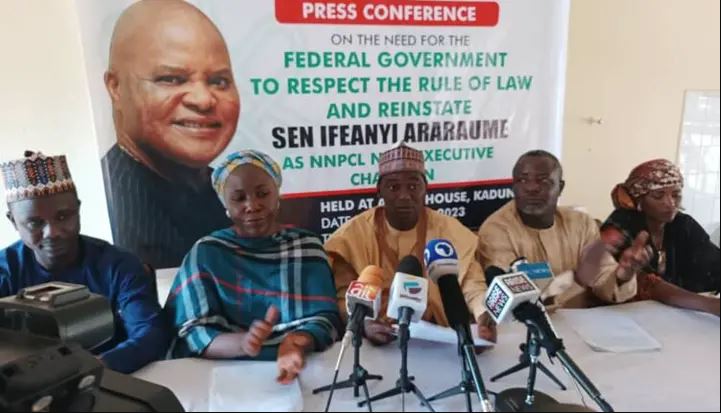Fresh indication emerged weekend from the office of the US Treasury that Multilateral Development Banks (MDBs) that Donald Trump is working on rethinking its opposition to the use of fossil fuels, especially coal.
If the deal sales through, in Africa, only Ghana and South Africa will earn big excluding Nigeria because the sector had been dead since the discovery of oil in the 1970s.
However, the sector recently attracted the attention of the Minister of Solid Minerals, Dr. Kayode Fayemi who toured moribund Enugu coal mines and assured that government will revive the sector.
Even though nothing has been heard again on that, recently, Africa’s leading industrialist, Aliko Dangote and Eta Ezuma group are beginning to make serious impacts by way of investment in the sector.
With the new thinking of the Trump administration on coal, they may be the first to gain from the deal.
Last October, Nigerian Finance Minister, Kemi Adeosun, told a joint IMF and World Bank meeting: “We in Nigeria have coal but we have power problems, yet we’ve been blocked because it is not green.
“There is some hypocrisy because we have the entire Western industrialisation built on coal energy.
“That is the competitive advantage that they have been using and now that Africa wants to use coal they deny us.”
Also in May 2016, Nigerian Vice President Yemi Osinbajo said: “We think that we must use our fossil fuel to the maximum; we must use our coal to the maximum; and we simply call on the support of the developed nations that are aggressive about reducing emissions, especially in coal power plants, to give us the technology required because, obviously, there is available technology to make coal clean which we call for.”
Besides, the announcement would help countries to access the natural resources more cleanly and efficiently, according to the experts.
US President Donald Trump had signalled the stand by his administration at the Munich G20 meeting in July amid opposition from climate change activists who argued that emissions from fossil fuels were damaging the environment.
Business Hilights recalls that the US policy under Barack Obama, was to reduce dependency on coal for energy which he declared at the launched of his Power Initiative for Africa in 2013. He had said, his administration would not back the use of coal abroad for electricity generation unless there were carbon emission controls.
During Obama administration, his though on coal energy did not go down well with African countries with abundant coal reserves, more so on a continent where over 600 million people do not have access to electricity.
They argue that they should be allowed to use coal to speed up their development just as Europe and North America had done to industrialise.
According to Naeema Ahmed, Founder and Director of the Africa Alternative Energy Initiative (AAEI) in London, welcomed the US Treasury’s stand saying “As a matter of urgency, countries need to look at alternative ways of accessing and using cleaner fossil fuels as well as renewable energy for economic development.
“This will help resolve issues of climate change and industrialised carbon emissions.
“As an organisation, the AAEI has been advocating and promoting cleaner and affordable energy through distributed generation,” she added.
The message would also be welcomed by the African Development Bank (AfDB), which in 2016, approved $1.7 billion for power projects ranging from policy-based operations to power generation, public sector transmission and distribution.
Even before the US announcement, the President of the AfDB, Akinwumi Adesina,had called on the West to recognise the need for Africa take a pragmatic approach to energy access.
In his remarks at the launch of the Japan-Africa Energy Initiative in Addis Ababa, he said: “Africa must develop its energy sector with what it has.”
“Endowed with many different energy sources – both renewable and conventional – Africa needs a balanced energy mix.
“This must include renewable and conventional sources of power for lighting and heating homes, for cooking, for schools, hospitals, offices, manufacturing plants and factories.”
According to Akinwunmi, “Africa loses about four per cent of its annual gross domestic product from energy bottlenecks and inefficiencies, while 645 million people have no access to electricity; 137 years after the invention of the light bulb.”
Figures show that Africa has the lowest electrification rate in the world, with the lowest power consumption per capita estimated at 613 kWh per annum, compared to 6,500 kWh in Europe and 13,000 kWh in the US.
African countries therefore call for the chance to make use of its 50 billion tons of coal reserves to provide access to electricity for more people while making use of clean technology.
Akinwunmi said many African leaders had shown “keen interest in accessing Japan’s world-renowned energy technologies, including its ultra-supercritical clean coal technologies”.
“Japan has answered our call to make it easier for African governments to adopt a balanced energy mix of all available energy sources and technologies, including the best low-emitting clean coal technologies, where they form part of a least-cost sector development plan,” he added.
Statistics from the International Energy Agency’s New Policies Scenario, demand for coal in Nigeria will increase from 1Mtoe in 2020 to 12Mtoe in 2040.








